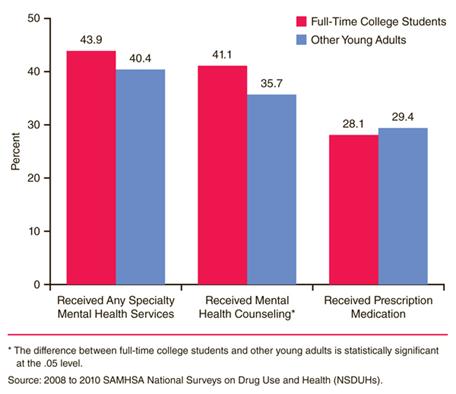 s may only be juniors they have caught the very contagious and incurable senioritis!
s may only be juniors they have caught the very contagious and incurable senioritis!
Reality & Perspective: The Move From Home To College
By: XiaoYing Van Schaik
For many high school students junior year, also known as the “year of hell” is the beginning of the quest to find the right college. The prospect of college is a new and exciting transition that promise freedom and independence from home rules. Even though the student s may only be juniors they have caught the very contagious and incurable senioritis!
s may only be juniors they have caught the very contagious and incurable senioritis!
What happens when it comes time to pack up the family car and move on out?
What happens when homesickness becomes too real to bear, classes are actually difficult, and the next thing you know those three weeks of straight partying got you straight Cs and Ds?
What happens when freedom becomes the cuffs of responsibility, stress, and constant anxiety?
Communication
“It is very common to see a lot of students within the first month of school,” said DeDe Trapp, a nurse at the Hood College health center. “We are not sure what causes it, but usually it is a combination of factors, but the most common being physical illness for anxiety, stress, and adjustment issues.”
These are common issues felt by all students, resident, commuter, and off-campus residents.
In today’s age of constant communication, whether it is through an iPhone, Facebook, or even email, it has been suggest by school counselors, athletic recruiters, and admissions department, more communication a student has prior to their move in will assure a smoother overall transition.
Many schools will offer admitted students days, overnight visits, and many other prospective student opportunities.
“It would be wise of the student to take advantage of these opportunities.” said Trapp.
“When I was a junior in high school, I was in communication with the hockey coach, so we scheduled an overnight. So when I decided I was going to be attending Hood for sure I already knew 10 girls (girls from the team),” said Rachel Marlow, now a sophomore and still an active member of the field hockey team.
Staying Active
Many school officials and upperclassmen will tell a new student to get involved as soon as possible. By busying yourself you are able to distract from the homesickness or anxiety of a new place. However, for some residential students that was not quite the case.
Ben (who asked that his last name not be used) had only been at Hood for two weeks before he started to physically harm himself. Another two weeks before he began abusing alcohol, and an additional two weeks before he began to self medicate. By the time October arrived he was in the hospital on suicide watch.
“It is easy to get lost, to get overwhelmed in homework and classes,” he said. “I just got so far behind I didn’t know how to get help. You just want to keep up socially. It’s like peer pressure is all around you to chill, and it’s just hard to say no. I was too embarrassed to tell anyone.”
Even though college is an exciting expected next step in a young adult’s educational career, not all young adults are ready for the transition. Delores Grigsby, director of Counseling at Hood College, explains how some students who have had little experience from being away from home have issues in adjusting, and sometimes “people are not ready to be in college or are not able to keep up from high school expectations to college expectation.”

Non Residents
Not every resident student face extreme change issues as Ben seem to have stumbled upon. But it is not only residential students who feel the stress of the approaching adulthood, but also commuter students.
“I live 30 minutes away,” said Hannah McCaw a rising senior. “It kinda sucks because you can’t just come to campus to join a school activity or event. But the good part about living away from campus is you avoid the drama. So that’s one less thing for me to worry about.” She said with a giggle.
Hannah is a student who lives completely off campus, but there are a good handful of students who are “off campus residents.” This means, they reside in apartments facilitated through the college.
“I lived on campus my first two years,” said Amanda Walloga, a now off-campus student. “And now I live in the Sunset Apartments. They are nice, it’s like having your own place, and even though you have more roommates than in a dorm, it’s still so much bigger!”
When it comes to off campus or on campus, it just depends on the individual. Some students have lived on campus, moved off, and moved back. Once again it depends on your activity level, and the amount in which you want to be involved with your school community.
Stress and Class
Not only do the types of students differ when it comes to stress but so does the range in class levels. “In the fall I get a lot of freshmen, homesickness being the most common problem,” said Grigsby. “But in the second semester it’s a mixture. Sometimes it is a surge of senior’s in the spring, for the ‘what is next’ issue.”
The top five stress factors that trigger depression and anxiety reported by college students are:
With those five possible reasons that can be attributed to stress it would be hard to believe that any one can get a night’s rest! What about being too involved? Is there such a thing?
Not necessarily, says Grisby. She states that students who choose to take on multiple clubs, sports teams, and class schedules do so because they out way the benefit they gain from those activities verses the possible stress factors that can accumulate from a full schedule.
There are full-time students who work, are executive members of clubs, dual majors and minors, and are members of an athletic team and throughout all this are able to keep a steady GPA and social life. How?
“Planning.” Said Chrissi Arnold, a rising senior at Hood College. Prior to her attendance at Hood, she was a 14-year-old student at Florida Gulf Coast University in Fort Myers, Florida. She was studying a dual major in pre-med and law, as well as being a sport reporter for her school newspaper, and a cheerleader.
“It wasn’t easy, and of course I had my stressed out days. But if I didn’t have all those activities I think I would have gone crazy. I would have ended up doing something that was bad for me, or I would have too much time to think about being homesick.”
When it comes to transitioning to college, there is no rigid schedule that anyone should follow. It has to be done when the applicant is fully ready, otherwise that first year may just be a waste. Explains Grisby.
“Get involved. Try new clubs and activates outside of your comfort zone. You may be surprised to find that with a reassured sense of belonging this social benefit can outlay the demands.”